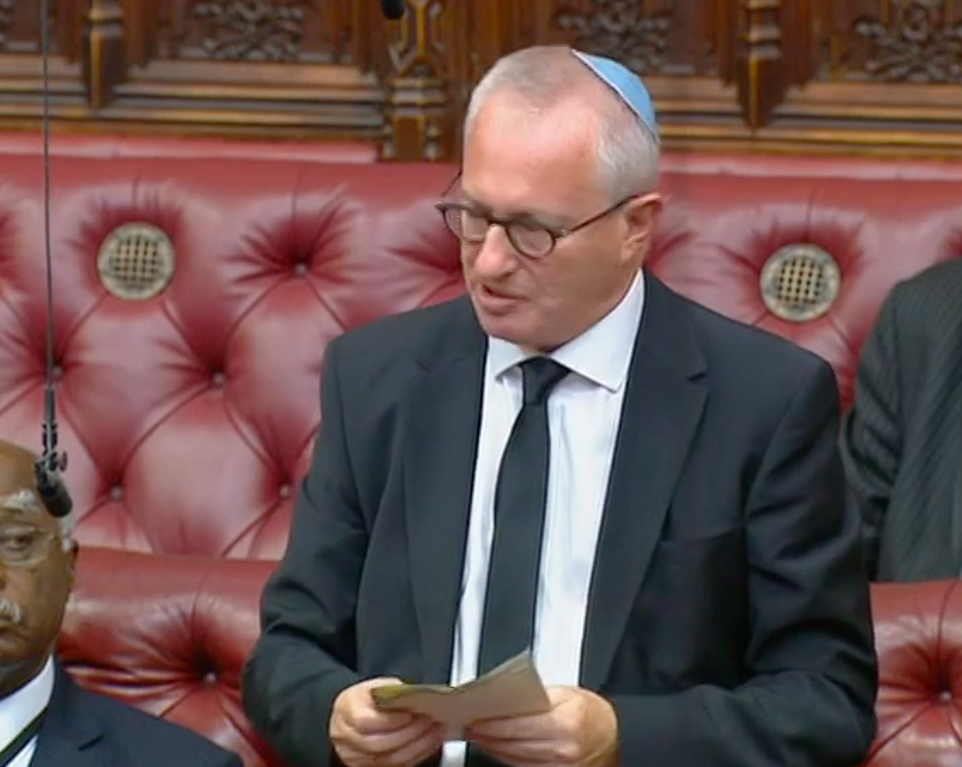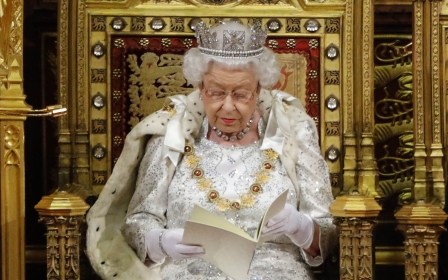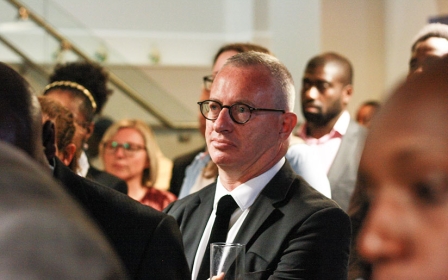Queen Elizabeth II: Foreign Office 'prohibited' monarch from visiting Israel, claims peer

Veteran pro-Israel advocate Stuart Polak has claimed that the UK Foreign Office "prohibited" Queen Elizabeth II, who died on Thursday, from visiting Israel during her time as monarch.
Polak, who serves as the honorary president of the influential Conservative Friends of Israel group (CFoI), made his remarks on Friday during tributes to the queen in the House of Lords.
Speaking about his encounters with the royal family, Polak remarked how "sad" it was that she (the queen) was not allowed to visit Israel.
Recounting a conversation with Princess Anne, the queen's daughter, Polak said: "We had a conversation and discussed how the royal family were prohibited by the Foreign Office from visiting Israel.
"We agreed that it was, and is, sad that the queen, as someone who was deeply religious and God-fearing, never walked down the Via Dolorosa into the Church of the Holy Sepulchre, or experienced the peace and tranquility on the shores of the Sea of Galilee."
New MEE newsletter: Jerusalem Dispatch
Sign up to get the latest insights and analysis on Israel-Palestine, alongside Turkey Unpacked and other MEE newsletters
Despite her visiting more than 120 countries and travelling around a million miles during her 70 years on the throne, the queen never visited Israel.
Indeed, no member of the UK's royal family visited the country in an official capacity until 2018, when Prince William, the queen's grandson, arrived for the 70th anniversary of Israel's independence, ending what appeared to many as an unofficial boycott.
Reasons given for the apparent snub ranged from a fear of upsetting wealthy Gulf Arab nations and losing subsequent trade deals, to the violent insurgency waged against the British mandate in Palestine by Zionist armed groups prior to Israel's declaration of independence in 1948.
The queen's eldest son, who has become King Charles III following her death, made an official visit as Prince of Wales to Israel and the occupied West Bank in January 2020.
Before becoming honorary president, Polak served as the CFoI's 's director for nearly 25 years.
Over the years, the Conservative peer has organised hundreds of trips to Israel for politicians and journalists, as well as writing speeches for numerous Conservative party leaders.
His efforts have helped ensure that around 80 percent of Conservative MPs have previously been reported as members of the CFoI.
The Foreign Office had not responded to MEE's request for comment on Polak's remarks at the time of publication.
'Only true democracy'
In 2017, leaked documents accused Polak of organising unauthorised meetings between Priti Patel, the former UK home secretary who at the time was development minister, and Israeli politicians, including ex-Prime Minister Benjamin Netanyahu, during a "family holiday" she spent in Israel.
Polak defended the meetings - which led to Patel resigning as development minister - telling the BBC he had just happened to be in Israel at the same time as her.
Polak also described comments by Baroness Warsi, a former co-chairperson of the Conservative party, to Middle East Eye on British dual-nationals who serve with the Israeli army as "misguided" and showing a "total lack of understanding of the only true democracy in the Middle East".
Warsi, who resigned from the government in 2014 in protest at UK support for Israel's war against Gaza, told MEE that she had asked the Foreign Office why it made a distinction between British people who fought for state actors and those who fought for non-state actors.
“If you go out there and fight for any group, you will be subject to prosecution when you get back. If you go out and fight for Assad, I presume, under our law, that is okay. That can't be right,” she said.
In response, Polak said: "To equate the actions of the Israeli Defence Force [Israeli army] and non-state actors that include vile terror groups such as Daesh [Islamic State] is misguided.
"This blase attitude is both careless and shocking."
Middle East Eye delivers independent and unrivalled coverage and analysis of the Middle East, North Africa and beyond. To learn more about republishing this content and the associated fees, please fill out this form. More about MEE can be found here.





